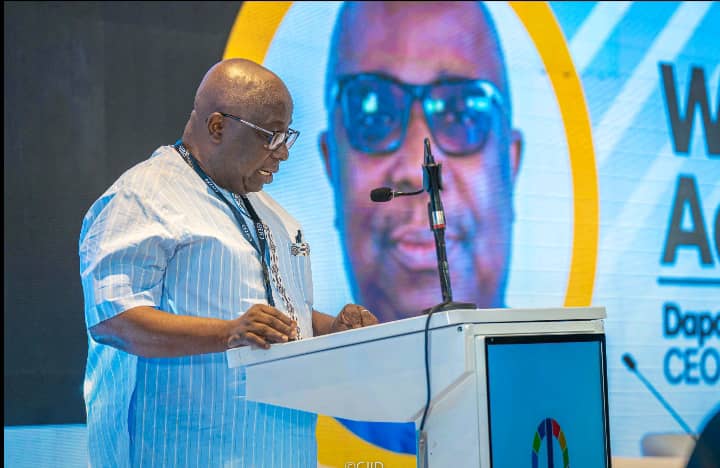By Diana Omueza
The Centre for Journalism Innovation and Development (CJID) has raised concerns over the growing vulnerability of democracy and the media landscape in Africa, calling for urgent reimagining and digital strengthening to safeguard the continent’s future.
Speaking at the Third Annual Media Development Conference (MDC-03) held on Monday in Abuja, CJID’s Chief Executive Officer, Mr. Dapo Olorunyomi, emphasized that Africa is currently at a critical turning point. The conference was themed “Reimagining Democracy, Development and Data for the Next Decade.”
Olorunyomi noted that African countries are facing major social and political transformations, with many democracies battling declining trust, weakened institutions, and increasing citizen disillusionment.
“Today, Africa stands at a crossroads. The decisions we make over the next decade will shape not only the trajectory of our democracies, but also the strength of our economies, the integrity of our information sphere, and the protection of digital rights,” he said.
He highlighted rising anxieties across the continent—shrinking civic spaces, controversial elections, coups, constitutional breaches, and governance failures which have collectively undermined public confidence in democracy.
According to him, entire communities increasingly feel silenced and disconnected, while millions of young people believe democratic systems no longer accommodate their aspirations.
Olorunyomi also painted a troubling picture of the African media environment, describing it as “severely strained.” He listed collapsing advertising revenues, reduced donor funding, government-enabled censorship, digital manipulation, and sophisticated forms of online harassment as major threats weakening journalism.
Despite these challenges, he maintained that Africa can still pursue a democratic revival—but only if democracy is reimagined and adapted to current realities.
“Reimagining democracy means building institutions that listen, establishing governance systems that learn, and promoting a political culture rooted in accountability, transparency, and citizen empowerment,” he said.
He added that strengthening civic space, restoring public trust, and empowering regional bodies to defend constitutional order are equally vital.
The CJID CEO called for:
Innovative media business models to ensure sustainability,
Public-interest funding to protect editorial independence,
AI-driven fact-checking systems,
Digital and civic literacy initiatives,
Locally governed digital platforms, and
A new generation of journalists trained in data journalism and digital security.
Olorunyomi also warned against what he termed data colonialism, where global tech corporations extract African users’ behavioral patterns and personal information for profit and political manipulation.
Highlighting CJID’s contributions, he mentioned the Campus Reporter Programme, active in 34 Nigerian universities and preparing to expand to 13 additional African countries. The initiative aims to train and mentor young journalists committed to public-interest reporting.
Also speaking, the Canadian High Commissioner to Nigeria, Pasquale Salvaggio, noted that digital platforms remain powerful tools for amplifying credible information. He said Canada is supporting CJID through community initiatives focused on countering disinformation and building digital resilience, particularly in conflict-affected regions.
Similarly, the Spanish Ambassador to Nigeria, Mr. Félix Costales-Artiede underscored the critical role of the media in shaping public perception and strengthening democratic governance. He highlighted Spain’s efforts in training Nigerian journalists on fighting disinformation while learning Nigeria’s media challenges.
Costales-Artiede urged journalists to study the long-term impact of information overload and find innovative strategies to curb the harmful narratives circulating on social media. According to him, unchecked misinformation has the potential to destabilize democracies and distort public reasoning.
He commended CJID for championing media development and called for sustained partnerships to reshape Africa’s democratic landscape for the better.



